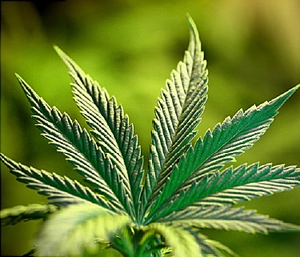Marijuana Smoking Caution
"We know there's something in opium that helps pain, and we're able to pharmaceutically develop morphine and other analgesics, but we wouldn't say to people. 'You have pain? Why don't you smoke opium'?"
"We're kind of saying to people, 'We think there's some stuff that cannabinoids will be helpful for. Why don't you just smoke cannabis? First of all, cannabis is actually a really dangerous thing for your lungs."
Paul Farnan, University of British Columbia

"Rectally is actually a lot more preferred because of the volume of absorption. You can put a lot more (sic) and it gets absorbed a lot better, but not everybody is open to this way of administration."
"We have so many other products now, so many modes of delivery, that smoking in my opinion is very archaic and has very little clinical applicability."
"Having said that, I think that probably the majority of people still smoke because it's the most available method."
Mikhail Kogan, George Washington University
"We know that there's an issue with smoking. However, we can't control it at the patient level."
"We're trying to develop new product forms so they [cannabis users] would be more inclined to go away from [cannabis in smokable format] that."
Colette Rivet, head, licensed cannabis producers, Canada

Experts are warning, amidst all the excitement in the public surrounding the growing social and legal acceptability of marijuana as a pain reliever and the ever-growing prospect of communities legalizing marijuana for recreational use, that there are certain health risks that should not be overlooked with its use. Among them smoking marijuana, which presents with the very same risks to lungs and the prospect of cancer down the road, as tobacco use.
Smoking may also dilute the effectiveness of marijuana for the very purpose of pain relief, and experts are pointing to alternate methods of marijuana use as being more efficient while presenting as absent the smoking risks. Those experts are attempting to drive home to people's consciousness that the potentially serious side effects linked to smoking would be best avoided, with alternate methods of consuming marijuana contemplated in its stead.
Doctors, for example, prescribing opium to patients for pain relief do not habitually give them a prescription for an opium pipe. And Dr. Kogan at Georgetown in Washington simply feels it is far more sensible to seek ways other than smoking to absorb marijuana to enhance its usefulness. Simply put, he points out, the drug is difficult to absorb through the lungs by smoking it. Additionally, gastric acids interfere with its potency, when it is taken in edible form.
A workable alternative, he offers, is to place it under the tongue. Or to use it rectally; both alternatives are favoured because of their absorptive capabilities. While the Canadian Medical Association has taken no formal position on medicinal pot consumption, officially it opposes the inhalation of any burned material sourced from plants.
Jeff Blackmer, a spokesman for the CMA, adds to that the fact that many doctors remain loathe to prescribe medical marijuana in recognition of the dearth of peer-reviewed research findings regarding the medical effectiveness of the drug, let alone its possible side effects, the dosage levels that might be deemed appropriate, and other additional considerations.
As for the association representing Canadian licensed cannabis producers, it agrees that smoking medical marijuana is problematical, but in the final analysis they are geared to produce the product, make it available, attest to its purity under sterile growing conditions, but stop short of persuading people how best to use it.
 |
| A worker harvests medical cannabis plants near Nazareth, Israel. Photograph: Amir Cohen/Reuters |
Physical effects of marijuana smoking use:
Lung and breathing problemsLike tobacco smoke, marijuana smoke is a mix of toxic substances. Marijuana smoke irritates the throat and lungs, causes coughing, and is associated with symptoms of bronchitis. Marijuana smoke also contains many of the same cancer-causing materials as tobacco smoke.
Regular marijuana smokers may suffer the same symptoms as tobacco smokers, such as:
Health Canada
- chronic (ongoing) cough,
- increased phlegm buildup in the throat (mucus),
- frequent chest problems, and
- greater risk of lung infections.
Labels: Health, Medical Marijuana, Pain, Smoking

0 Comments:
Post a Comment
<< Home